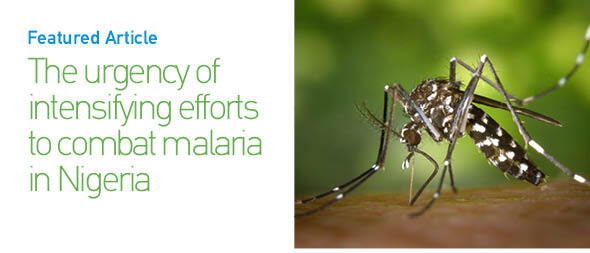Dear Editor,
Nigeria, with a population of over 200 million people, is the most populous country in Africa1. Its diverse ecological zones, including the Sahel region in the north, the Sudan savannah, and the rainforest belt in the south2, play a significant role in shaping the transmission patterns of malaria within the country. Nigeria accounted for 31.3% of all global malaria deaths and 27% of all cases worldwide in 20213. Children under five and pregnant women are particularly vulnerable to malaria in Nigeria4, where poverty, limited access to healthcare services, inadequate vector control measures, and suboptimal use of preventive interventions exacerbate the burden of the disease. Malaria has significant economic and health consequences5, costing Nigeria over US$1.1 billion annually and accounting for 60% of all hospital visits6.
Despite the proactive efforts of the National Malaria Elimination Programme (NMEP), the National Malaria Strategic Plan (2014–2020) fell short of its goal to eradicate malaria by 20207. While the establishment of the Nigeria End Malaria Council in August 2022 is a positive step8,9, additional efforts are necessary to effectively combat malaria in the country. The government must take further proactive measures to halt the ongoing spread of malaria and implement effective control strategies against malaria.
To achieve this, increased funding for malaria control programs is crucial. Therefore, more funds and resources should be allocated by the government to the NMEP while ensuring efficient utilization. This financial boost will enable the program to carry out its activities effectively and expand its reach across the country. Additionally, prioritizing the acquisition and equitable distribution of the RTS, S malaria vaccine among children is essential in combating the high incidence of malaria in sub-Saharan Africa10. Therefore, it is imperative that the Nigerian government proactively fulfills its plan to ensure malaria vaccination in 202411 and ensures equitable distribution.
Moreover, improving access to malaria prevention and treatment services is essential, particularly in rural areas where many people lack adequate healthcare access. This can be achieved through the expansion of distribution channels for insecticide-treated bed nets, diagnostic tests, and antimalarial drugs. Additionally, training healthcare workers in these areas will ensure proper diagnosis and treatment, thus reducing the burden of malaria.
Also, enhancing vector control measures is vital in curbing the spread of malaria. Measures such as indoor residual spraying, larviciding, and utilizing drones in remote areas can be effective strategies to target mosquito breeding grounds and reduce the population of disease-carrying vectors. Furthermore, strengthening private sector engagement and community awareness is crucial to promoting the uptake of malaria prevention and treatment services. The involvement of NGOs, community-based organizations, and faith-based organizations in supporting the government’s efforts is paramount.
Overall, despite the fact that Nigeria has made significant efforts in the fight against malaria, the nation still has to do more to eliminate the disease’s high case burden, which has an impact on the nation in a number of ways. The collaborative efforts of the government, private sector, and communities are essential for achieving sustainable results and improving the overall health and well-being of the population.


